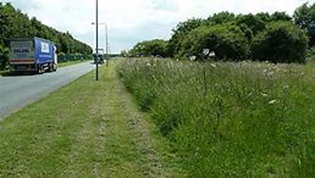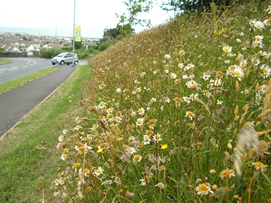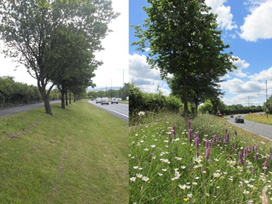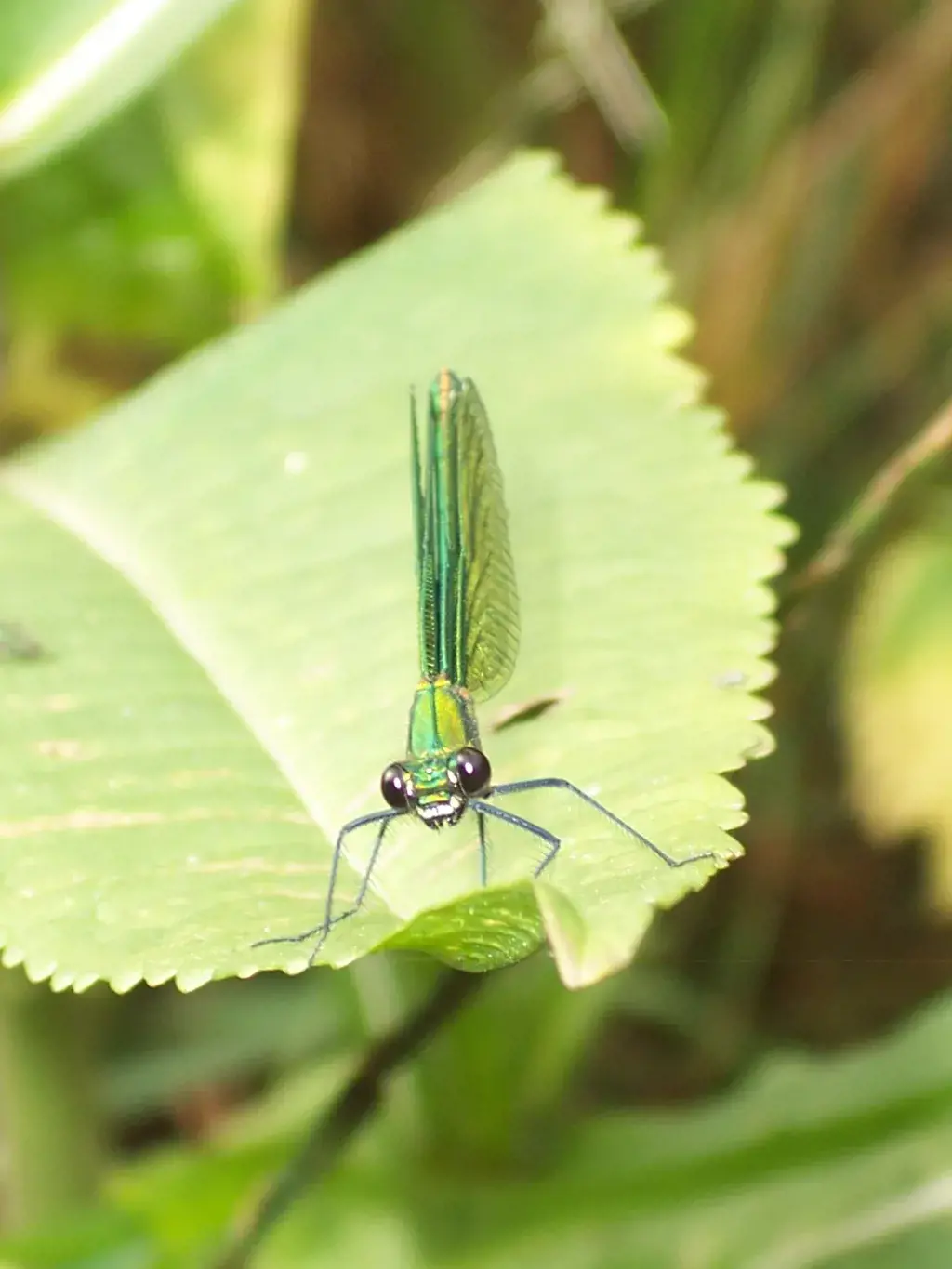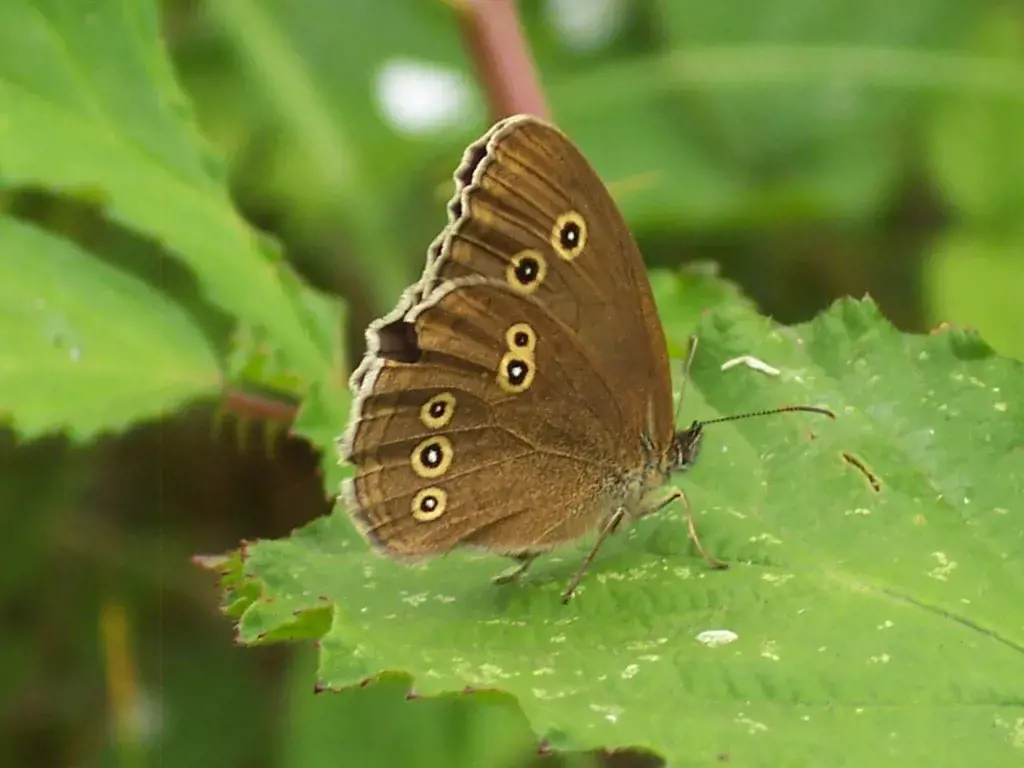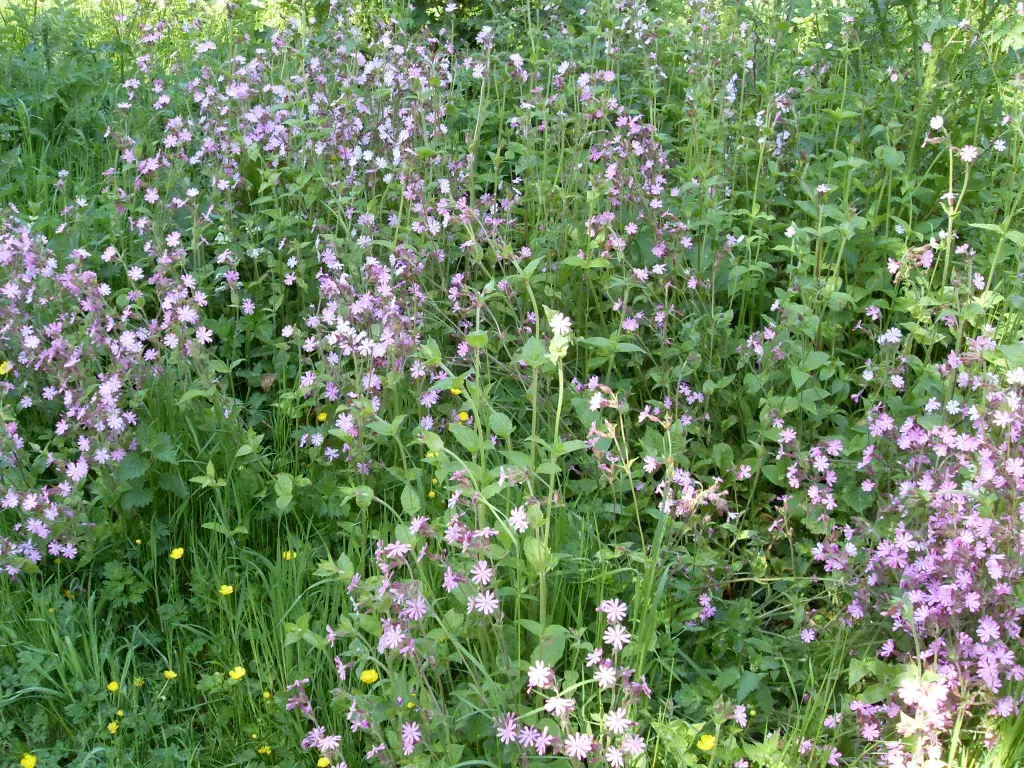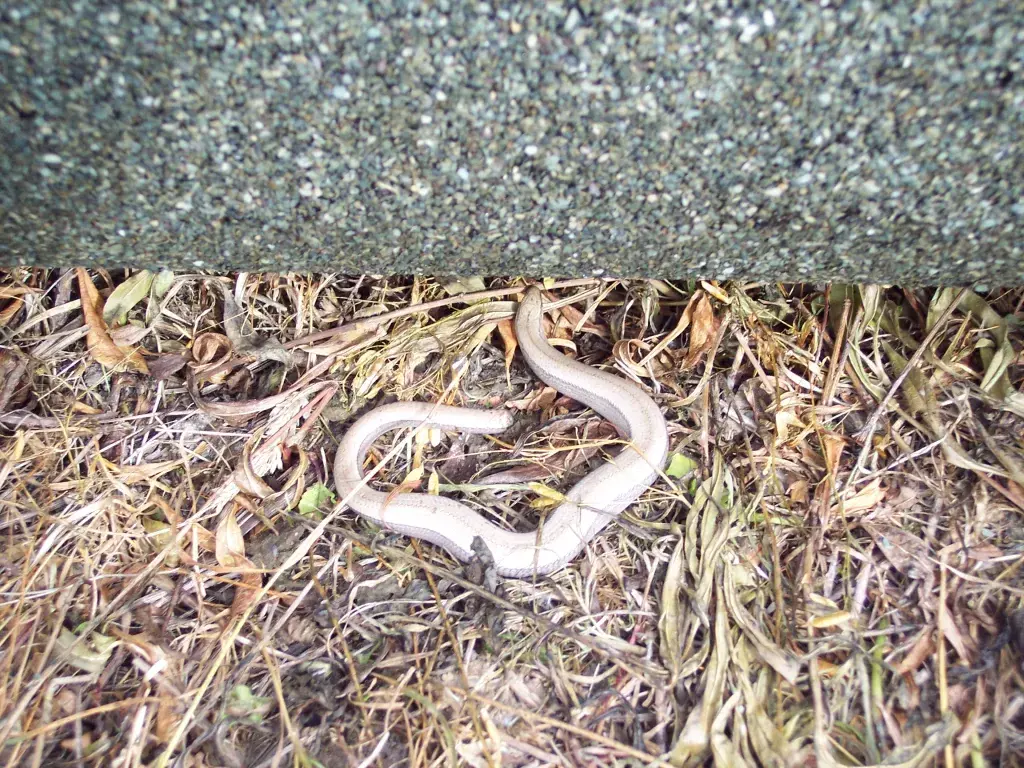Reduced grass cutting to address climate change
Bees and other pollinators will flourish in Chelmsford, following a decision by the City Council to reduce grass-cutting in various areas. This includes parks and communal green spaces, recreational areas, residential open spaces and roadside verges. The new approach aims to support wildlife and help the fight against climate change.
How does it all work?
Council officers have assessed each area to decide how it will be cared for, so the mowing schedule will vary from area to area. Some areas will be cut more often than others.
It all depends on the location, highway sightlines, safety, visibility, and what’s practical. For instance, verges where lots of people walk will be cut more often than wilder areas.
Even where grass is cut less often, council staff will still visit and pick litter. At the end of the growing season, the council will carry out a final cut and, where possible, remove cuttings to neaten everything up before winter.
Why is the council adopting this new approach?
There are very good reasons why this is now the go-to method to manage grassland, in Chelmsford and beyond.
1. Taller grasses and wildflower meadows support bees and other pollinators
Bees, hoverflies, butterflies, beetles, grasshoppers and moths pollinate 80% of all plant species in Europe, including food crops like tomatoes, rapeseed and strawberries.
The number of pollinating insects has drastically declined over the years, with a quarter of bumblebee species now facing extinction. This is having a devastating impact on local ecosystems, the food chain and our own food production.
Relaxing the mowing regime will provide early sources of nectar from dandelion to support bees emerging from hibernation, providing shelter throughout the growing season.
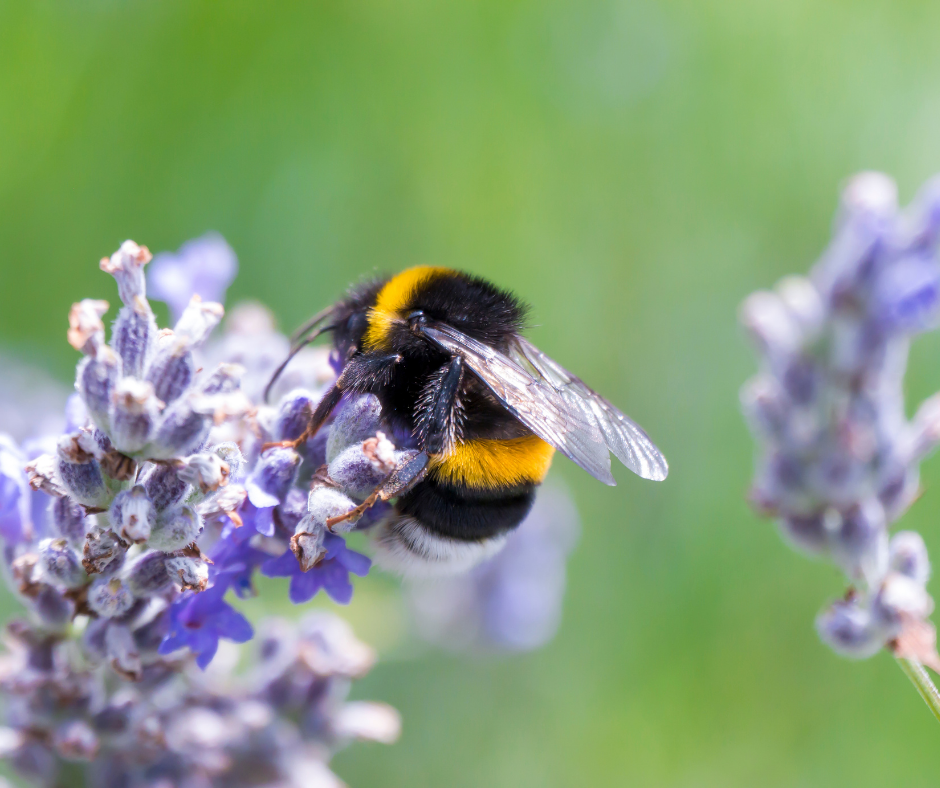
2. Local wildlife will have the opportunity to thrive
Chelmsford is home to a wide variety of mammals, birds and reptiles that depend on grassland habitat. The new approach will reverse the damage done through frequent mowing, which disrupts the natural cycle of plants and insects and destroys micro-habitats.
It is encouraging to see an increasing number of councils across the UK adopt a similar ‘relaxed’ approach to their grass cutting schedules.
“Essex Wildlife Trust is very supportive of a new grassland management policy to help protect our wildlife in Essex. Over 700 species of wildflower grow on road verges and in our green spaces, from the simple dandelion to the delicate bee orchid. With 97% of meadows destroyed since the 1930s, the way that road verges and green spaces are managed can have a major impact on their value to wildlife.
Danielle Carbott, Urban Engagement Officer at Essex Wildlife Trust
A typical species-rich meadow can support over 1,000 species of invertebrates including bees, butterflies, beetles, grasshoppers, and moths. By reducing cutting frequency and employing cut-collect strategies, verges and green spaces can become rich in native wildflowers and support more wildlife, by acting as stepping-stones and corridors of connectivity.
3. Addressing the Climate and Ecological Emergency
Urbanisation, agriculture, and climate change have caused a long-term decline in much of the UK’s wildlife-rich habitat and “common” species. As a result, since the 1950s, the number of hedgehogs has fallen by 95%, turtle doves by 98% and the common toad by 68%.
In July 2019, Chelmsford City Council declared a Climate and Ecological Emergency, together with a robust Climate Action Plan spanning all areas of the council’s operations.
“Planet Earth is losing 150-200 species to extinction every single day. Biodiversity, short for “Biological Diversity”, encapsulates all living things and the systems which connect them. Biodiversity Loss is speeding Climate Change because it rapidly reduces the earth’s own ability to maintain clean air and water, and to provide food and habitat for all creatures – including us.
Councillor Rose Moore, Cabinet Member for Greener and Safer Chelmsford
Through our new policy for the management of Species-Rich Grassland, the council is taking bold action to address the devastating impact of climate change. Relaxed grass cutting during growing season has proven to be a more sustainable method of grassland management. This will reduce the council’s carbon footprint and encourage greater biodiversity. It is designed to benefit people and local wildlife; a multi-layered approach that will protect and enhance the space we share.
More information
More information and Frequently Ask Questions on the new strategy can be found on Love Your Chelmsford.

